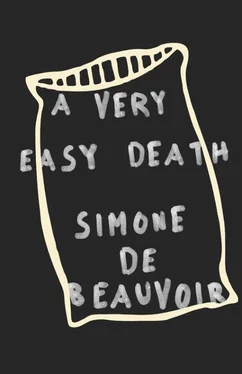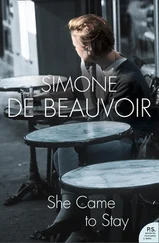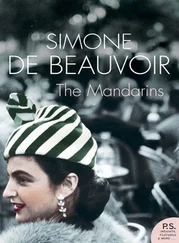Simone de Beauvoir - A Very Easy Death
Здесь есть возможность читать онлайн «Simone de Beauvoir - A Very Easy Death» весь текст электронной книги совершенно бесплатно (целиком полную версию без сокращений). В некоторых случаях можно слушать аудио, скачать через торрент в формате fb2 и присутствует краткое содержание. Город: New York, Год выпуска: 2012, ISBN: 2012, Издательство: Pantheon Books, Жанр: Биографии и Мемуары, на английском языке. Описание произведения, (предисловие) а так же отзывы посетителей доступны на портале библиотеки ЛибКат.
- Название:A Very Easy Death
- Автор:
- Издательство:Pantheon Books
- Жанр:
- Год:2012
- Город:New York
- ISBN:978-0-307-83219-1
- Рейтинг книги:4 / 5. Голосов: 1
-
Избранное:Добавить в избранное
- Отзывы:
-
Ваша оценка:
- 80
- 1
- 2
- 3
- 4
- 5
A Very Easy Death: краткое содержание, описание и аннотация
Предлагаем к чтению аннотацию, описание, краткое содержание или предисловие (зависит от того, что написал сам автор книги «A Very Easy Death»). Если вы не нашли необходимую информацию о книге — напишите в комментариях, мы постараемся отыскать её.
The Sunday Telegraph
Powerful, touching, and sometimes shocking, this is an end-of-life account that no reader is likely to forget.
A Very Easy Death — читать онлайн бесплатно полную книгу (весь текст) целиком
Ниже представлен текст книги, разбитый по страницам. Система сохранения места последней прочитанной страницы, позволяет с удобством читать онлайн бесплатно книгу «A Very Easy Death», без необходимости каждый раз заново искать на чём Вы остановились. Поставьте закладку, и сможете в любой момент перейти на страницу, на которой закончили чтение.
Интервал:
Закладка:
‘If she has a few days of happiness like this, keeping her alive will have been worth while,’ said Poupette to me. But what was it going to cost?
‘This is a death-chamber,’ I thought the next day. Across the window there was a heavy blue curtain. (The blind was broken and it could not be pulled down; but formerly the light had not worried Maman.) She was lying in the darkness with her eyes closed. I took her hand and she whispered, ‘It’s Simone: and I can’t see you!’ Poupette left; I opened a detective story. From time to time Maman sighed, ‘I am not in my right mind.’ To Dr P she complained, ‘I am in a coma.’
‘If you were, you wouldn’t know it.’
That reply comforted her. A little later she said to me with a thoughtful air, ‘I have undergone a very grave operation. I am a person who has been operated upon in a very serious way.’ I improved on this and little by little she recovered her spirits. The evening before, she told me, she had dreamed with her eyes open. ‘There were men in the room, evil men dressed in blue; they wanted to take me away and make me drink cocktails. Your sister sent them off …’ I had said the word cocktail, talking about the mixture that Mademoiselle Leblon was getting ready; she was wearing a blue headdress; as for the men, they were the male nurses who had taken Maman off to the operating theatre. ‘Yes. That’s it, no doubt …’ She asked me to open the window. ‘How pleasant it is to have fresh air.’ Birds were singing and she was enchanted. ‘Birds!’ And before I went away she said, ‘It’s odd. I feel a yellow light on my left cheek. A pretty light coming through a yellow paper: it’s very pleasant.’
I asked Dr P, ‘Has the operation in itself been a success?’
‘It will have been a success if the movement through the intestines starts again. We shall know within two or three days.’
I liked Dr P. He did not assume consequential airs; he talked to Maman as though she were a human being and he answered my questions willingly. On the other hand, Dr N and I did not get along together at all. He was smart, athletic, energetic, infatuated with technique, and he had resuscitated Maman with great zeal; but for him she was the subject of an interesting experiment and not a person. He frightened us. Maman had an old relative who had been kept alive in a coma for the last six months. ‘I hope you wouldn’t let them keep me going like that,’ she had said to us. ‘It’s horrible!’ If Dr N took it into his head to beat a record he would be a dangerous opponent.
‘He woke Maman to give her an enema that did not work,’ Poupette told me in distress on Sunday morning. ‘Why does he torment her?’ I stopped N as he went by: he never spoke to me of his own accord. Once again I begged him, ‘Do not torment her.’ And in an outraged tone he replied, ‘I am not tormenting her. I am doing what has to be done.’
The blue curtain was raised, the room less gloomy. Maman had had herself bought some dark glasses. She took them off as I came in. ‘Ah, today I can see you!’ She felt well in herself. In a calm voice she said, ‘Tell me, have I a right side?’
‘How do you mean? Of course you have.’
‘It’s funny: yesterday they told me that I looked well. But I only looked well on the left side. I felt the other was all grey. It seemed to me that I had no right side any more – that I was divided into two. Now it’s coming back a little.’
I touched her right cheek. ‘Do you feel that?’
‘Yes, but as though it were a dream.’
I touched her left cheek.
‘That’s real,’ she said.
The broken thigh, the operation-wound, the dressings, the tubes, the infusions – all that happened on the left side. Was that why the other no longer seemed to exist?
‘You look splendid. The doctors are very pleased with you,’ I asserted.
‘No. Dr N is not pleased: he wants me to break wind for him.’ She smiled to herself. ‘When I get out of here I shall send him a box of those chocolate dog-messes.’
The pneumatic mattress massaged her skin; there were pads between her knees, and they had a hoop over them to prevent the sheets from touching; another arrangement stopped her heels touching the draw-sheet: but for all that, bed-sores were beginning to appear all over her body. With her hips paralysed by arthritis, her right arm half powerless and her left immovably fixed to the intravenous dripper, she could not make the first beginnings of a movement.
‘Pull me up,’ she said.
I dared not, all by myself. I was not worried by her nakedness any more: it was no longer my mother, but a poor tormented body. Yet I was frightened by the horrible mystery that I sensed, without in any way visualizing anything, under the dressings, and I was afraid of hurting her. That morning she had had to have another enema and Mademoiselle Leblon had needed my help. I took hold of that skeleton clothed in damp blue skin, holding under the armpits. When Maman was laid over on her side, her face screwed up, her eyes turned back and she cried, ‘I am going to fall.’ She was remembering the time she had fallen down. Standing by the side of her bed I held her and comforted her.
We sat her up again, carefully propped with pillows. After a moment she exlaimed, ‘I have broken wind!’ A little later she cried, ‘Quick! The bed-pan.’
Mademoiselle Leblon and a red-haired nurse tried to put her on to a bed-pan; she cried out; seeing her raw flesh and the harsh gleam of the metal, I had the impression that they were setting her down on knife-edges. The two women urged her, pulled her about, and the red-haired nurse was rough with her; Maman cried out, her body tense with pain. ‘Ah! Leave her alone!’ I said.
I went out with the nurses. ‘It doesn’t matter. Let her do it in her bed.’
‘But it is so humiliating,’ protested Mademoiselle Leblon. ‘Patients cannot bear it.’
‘And she will be soaked,’ said the red-head. ‘It is very bad for her bed-sores.’
‘You can change the clothes at once,’ I said.
I went back to Maman. ‘That red-haired one is an evil woman,’ she moaned in her little girl’s voice. And much distressed she added, ‘Still, I didn’t think I was a cry-baby.’
‘You aren’t one.’ And I said to her, ‘You don’t have to bother about a bed-pan. They will change the sheets – there’s no sort of difficulty about it.’
‘Yes,’ she replied. And with a frown and a look of determination on her face she said, as though she were uttering a challenge, ‘The dead certainly do it in their beds.’
This took me completely aback. ‘It is so humiliating.’ And Maman, who had lived a life bristling with proud sensitivities, felt no shame. In this prim and spiritualistic woman it was also a form of courage to take on our animality with so much decision.
She was changed, cleaned and rubbed with alcohol. Now it was time for her to have a quite painful injection that was meant, I think, to counteract the urea, which she was not getting rid of properly. She seemed so exhausted that Mademoiselle Leblon hesitated. ‘Do it,’ said Maman, ‘since it’s good for me.’
Once more we turned her over on to her side; I held her and I watched her face, which showed a mixture of confused distress, courage, hope and anguish. ‘Since it is good for me.’ In order to get well. In order to die. I should have liked to beg someone to forgive me.
The next day I learnt that the afternoon had passed off well. A young male nurse had taken Mademoiselle Leblon’s place and Poupette said to Maman, ‘How lucky you are to have such a young, kind nurse.’
‘Yes,’ said Maman, ‘he’s a good-looking fellow.’
‘And you are a judge of men!’
‘Oh, not much of a judge,’ said Maman, with nostalgia in her voice.
Читать дальшеИнтервал:
Закладка:
Похожие книги на «A Very Easy Death»
Представляем Вашему вниманию похожие книги на «A Very Easy Death» списком для выбора. Мы отобрали схожую по названию и смыслу литературу в надежде предоставить читателям больше вариантов отыскать новые, интересные, ещё непрочитанные произведения.
Обсуждение, отзывы о книге «A Very Easy Death» и просто собственные мнения читателей. Оставьте ваши комментарии, напишите, что Вы думаете о произведении, его смысле или главных героях. Укажите что конкретно понравилось, а что нет, и почему Вы так считаете.












